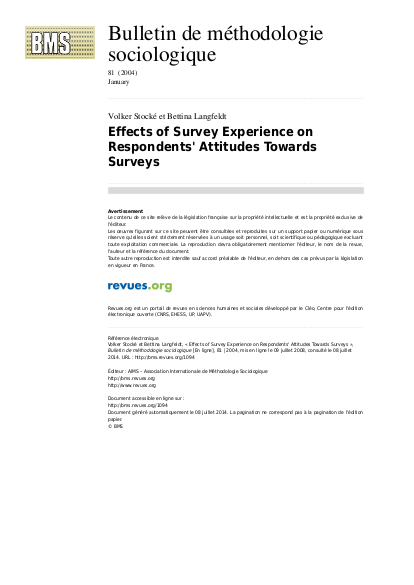
In the following article we analyze whether or not and to what extent respondents' evaluations of past interview experiences affect their generalized attitudes towards surveys. In particular, our study compares the relative significance of three orthogonal evaluation dimensions: the burden caused by interview participation, the "entertainment value" of an interview and the irritation due to confusing question wording. As a first result, the mode of administration of the last interview proved to be a significant predictor of the evaluation of surveys in general. The second and most important finding is that the burden experienced during the last interview, but not the other evaluation dimensions, has a significant effect on the generalized evaluation of surveys. In addition, the association between the subjective burden and survey attitudes is found to be conditioned by the cognitive accessibility of these evaluations, as measured by response latencies. Thus, cognitively more accessible and more salient instances of burdensome interview experiences are especially relevant for the respondents' attitudes, and therefore influence most likely cooperation in future surveys.
